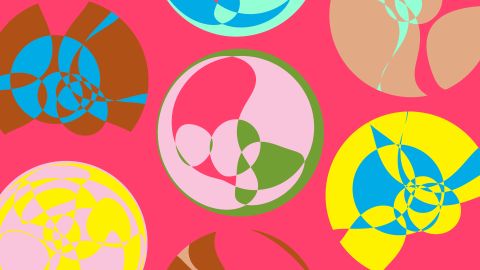A Participatory Planet | Growing
Relational Paths Towards Environmental Justice
Panel Discussion, Talk, DJ Set
Thu., 21.3.2024
22:00–23:59
Weltwirtschaft Restaurant
DJ Barış Cengiz
DJ SetFree entry
Thu., 21.3.2024
19:00–21:00
Safi Faye Hall
Growing Resistance
Panel Discussion
with Patricia Nuñez Dedos Verdes, Raffael Kreißl (jABL), Schilan KurdpoorIn German and Spanish with simultaneous translation into German and English
Free entry
Thu., 21.3.2024
21:00–22:00
Weltwirtschaft Restaurant
Hani and the Moon
ConcertFree entry

March 21 marks the beginning of the new year in the Zoroastrian calendar. It is a date of celebrating growth and fertility, and akin to all new years celebrations, it signals a new beginning. It is also the date upon which—according to the mythology—a young Kurdish blacksmith named Kawa instigated the revolt that freed his people from the oppressive regime of the ruling tyrant Dehak. After the successful revolt against the tyrant, the blacksmith burned down the castle to signal the day of liberation had come. As the legend goes, a cleansing fire cleared away the oppressive palace, and in place of its ruins, plants began to sprout from the newly-fertilized ground.
The story is a founding mythology of the Kurdish liberation movement that connects acts of emancipation to the agricultural practices of fertilizing the soil for seeds to grow—practices that take into account specific ways of relating to soil, land, and territory. Beyond Kurdish mythology, Newroz is also celebrated by Iranians and Afghans, and its significance is known in the Caucasus, the Balkans, parts of Asia, and the Black Sea. Last but not least, spring has given rise to rituals and forms of togetherness that have inherent political motivations, especially in communities with a strong connection to the country that has shaped their culture. This evening celebrates the social intelligence of plants and the relationships plants have to localized struggles for liberation and a more just existence for human and non-human life. As part of the A Participatory Planet programme, the Growing phase takes up herbs, seeds, and plants as political actors that participate in remembrance, healing, and resistance. What can the plant world teach us about histories of struggle? Can the fight for biodiversity connect to social struggles concerning notions of belonging? And can we reorient the question of growth away from capital and towards social, cultural, and land-based needs?
On this evening of the Zoroastrian New Year, the seed is taken as a starting point to share knowledge on ancestral plants, sustainable agricultural development, and share stories on how they have supported bottom-up movements across the world. But it is also a celebration of the living, and of the ongoing survival and growth of communities even under oppression. In this spirit, the evening closes with a musical celebration of resistance.